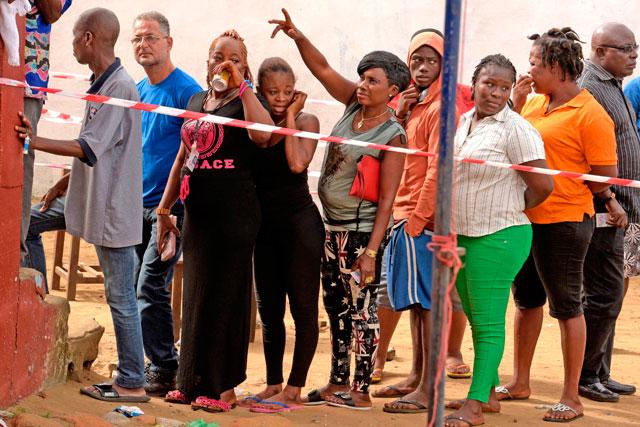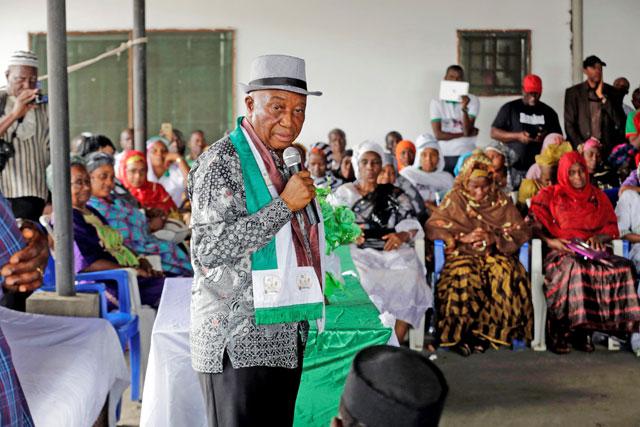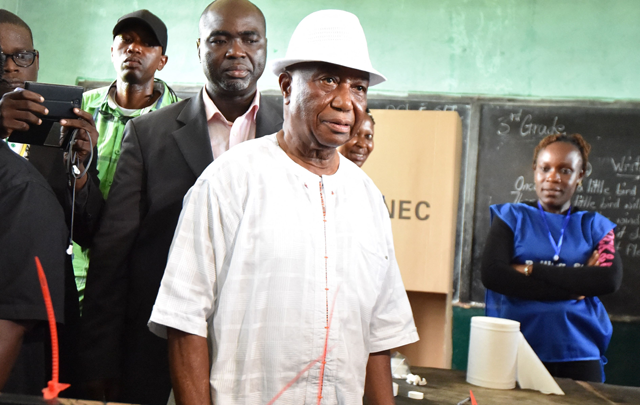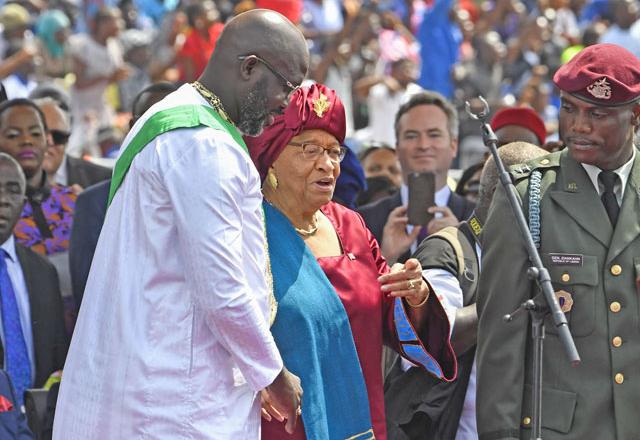You are here
Liberians head to the polls in historic, delayed election
By Reuters - Dec 26,2017 - Last updated at Dec 26,2017

Liberians queue to cast their ballots at a polling station during the second round of presidential elections in Monrovia on Tuesday (AFP photo)
MONROVIA — Liberia went to the polls on Tuesday for a presidential election that voters hope will mark the country’s first democratic transfer of power in over seven decades, despite its being tarnished by allegations of fraud.
Former world footballer of the year George Weah is squaring up against Vice President Joseph Boakai, with both men promising a break with a heritage of poverty and corruption in a country where most citizens have no reliable electricity or clean drinking water.
They are bidding to succeed Ellen Johnson Sirleaf in a run-off vote delayed for over a month after Boakai and third-placed Charles Brumskine of the Liberty Party alleged widespread fraud in October’s first-round vote, a challenge that the supreme court rejected this month.
There were no early reports of violence as voting proceeded under sunny skies in the capital Monrovia, with polling stations opening at 08:00 GMT and election agents telling Reuters first indications pointed to a lower turnout than in the first round.
“It is great day for Liberia — a test day for democracy,” said Boakai after casting his vote in Paynesville. “We will accept the results provided they meet all the standards.”
Johnson Sirleaf’s 12-year rule cemented peace in the West African country after civil war ended in 2003, and brought in much needed aid.
But critics, including much of the country’s youth, say her administration was marred by corruption and that she did little to raise most Liberians out of dire poverty.
Liberia was also racked by the Ebola crisis, which killed thousands in the country between 2014 and 2016, while a drop in iron ore prices since 2014 has dented export revenues.
Tuesday’s poll follows a month of political tensions fuelled by claims that the first-round poll was rigged in Weah’s favour.
Weah, world footballer of the year in 1995, won with 38 per cent versus Boakai’s 29 per cent.
“I voted George Weah because I believe that he will do better for me and my country. I want change,” said Miama Kamara, a 32-year-old businesswoman, before casting her ballot in the capital.
Boakai’s ruling Unity Party had accused Johnson Sirleaf, who is herself a member of the party, of interfering in the October vote by holding private meetings with election magistrates.
Boakai has found it harder to convince voters that he will bring change, given that he worked alongside Johnson Sirleaf for 12 years. Weah, by contrast, has won the hearts of mostly young Liberians through his star performances for Europe’s biggest football teams in the 1990s.
His arrival at a polling station in Paynesville was met with cheers by a crowd of supporters.
“My focus now is to win,” he told reporters. “From there, I am going to get on the drawing board with my team and then we’ll put a plan together to move our country forward.”
Some however are wary of Weah’s lack of political experience, education and concrete policy.
“Boakai understands diplomacy,” said McArthur Nuah Kermah, a school registrar in Paynesville. “Weah is not experienced and doesn’t know the workings of government.”
Related Articles
MONROVIA — Liberians choose a new leader on Tuesday in a run-off between Vice President Joseph Boakai and footballing icon George Weah, a vo
MONROVIA — Liberian leader and football legend George Weah conceded defeat to opposition leader Joseph Boakai after a tight presidential run
MONROVIA — To the cheers of a crowd fired by his promise to bring them jobs and prosperity, former football star George Weah was sworn

















